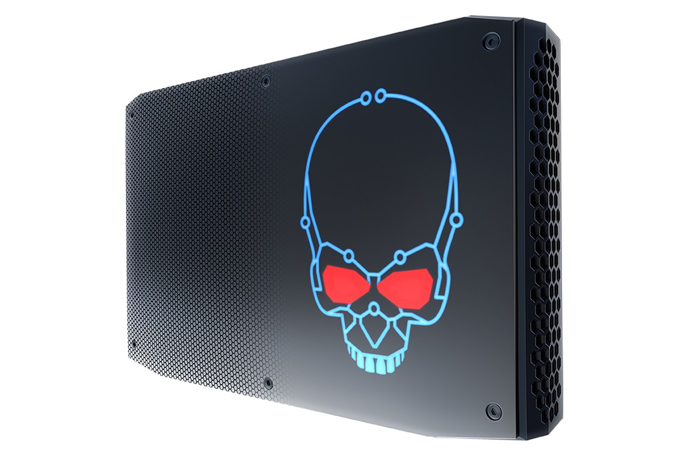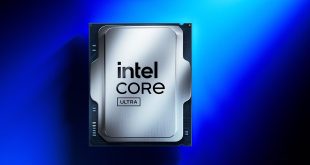Last year, Intel and AMD made its collaboration official, with plans to launch a new chip packing an Intel CPU and an RX Vega M GPU with HBM2 on board. At CES we got more details on specific specs for all five G-series processors and now this week, we have our first good look at performance. An engineering sample of Intel's upcoming ‘Hades Canyon' NUC mini PC has been benchmarked, showing decent 1080p gaming performance from the Intel/Radeon chip.
The folks over at Playwares managed to get their hands on the Kaby Lake and Vega powered mini PC, featuring the top end Core i7-8809G. This particular processor comes with 4C/8T, a base/boost speed of 3.1/4.2GHz and an RX Vega M GH GPU with 24 CUs, 1536 Stream Processors, 96 TUs, 64 ROPs and 4GB of HBM2 on board. Elsewhere in the system is 16GB of DDR4 RAM running at 2133MHz and a Samsung 960 Pro 1TB M.2 SSD.
Image credit: Intel
With these specs at 1080p resolution, the Intel NUC managed an average frame rate of 52.59fps in Rise of the Tomb Raider at ultra settings. In Assassin's Creed Origins, it managed 34fps at ultra settings, in Rainbow Six Siege it managed an average of 96fps and in PUBG it scored 65 frames per second on average using a custom preset.
With scores like that, it looks like Intel's Kaby Lake-G mini-PCs will be more than capable for gaming at 1080p and high detail settings. Some games may need to be dialed back a bit, but considering the CPU and GPU are running on the same chip, these are impressive scores.
Discuss on our Facebook page, HERE.
KitGuru Says: It looks like Intel's Kaby Lake-G processors are going to be very capable, and will likely help make mini-PCs like the NUC look more attractive to buyers. What do you guys think of the performance here?
 KitGuru KitGuru.net – Tech News | Hardware News | Hardware Reviews | IOS | Mobile | Gaming | Graphics Cards
KitGuru KitGuru.net – Tech News | Hardware News | Hardware Reviews | IOS | Mobile | Gaming | Graphics Cards



